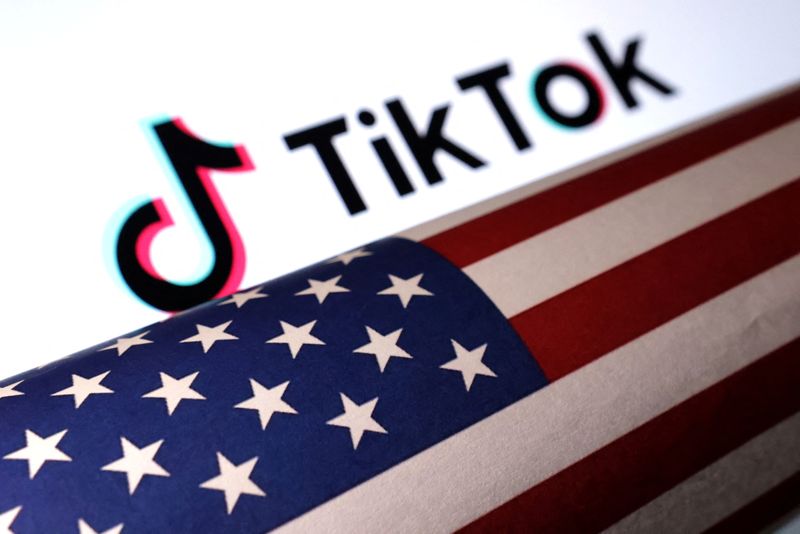Gold prices cool after hitting over 2-week high on Fed independence fears
Investing.com -- The Supreme Court is set to hear oral arguments on the law requiring ByteDance to divest from TikTok or face a US ban on Friday, January 10.
Analysts at Raymond (NS:RYMD) James view the law as “more likely than not to be upheld,” which could facilitate a ban on January 19. However, the incoming Trump administration has the authority to invoke a 90-day extension, adding uncertainty to the timeline.
According to the investment firm's report, the key legal issue is whether the Protecting Americans from Foreign Adversary Controlled Applications Act (PAFACA) violates the First Amendment when applied to TikTok.
The Court will hear two consolidated cases: one filed by TikTok and ByteDance, and another by content creators.
“The crux of the debate lies in whether the federal law requiring ByteDance to divest from TikTok or face a US ban violates First Amendment rights,” Raymond James analysts noted.
“As per their filed briefs, we expect TikTok and its creators to argue that the ban would infringe upon their freedom of speech by eliminating access to a major platform for expression,” they added.
In its brief, TikTok emphasizes its role as an American company engaging in editorial curation, asserting that this activity is protected under the First Amendment. The company also challenges the government's justifications for the ban, arguing that concerns about "content manipulation" represent either an impermissible restriction on protected speech or an overly broad approach that fails to consider less restrictive alternatives.
The Department of Justice, representing the US government, contends that the law is essential for national security, given ByteDance’s Chinese ownership.
According to Raymond James analysts, the DOJ frames the legislation as a content-neutral regulation targeting foreign adversaries, arguing that TikTok’s First Amendment claims are invalid given its foreign ties.
The analysts highlight the positions of several Supreme Court justices as pivotal. Justice Amy Coney Barrett’s prior rulings suggest sympathy toward the government’s argument on foreign ownership limiting constitutional protections.
Chief Justice John Roberts’ concerns about foreign interference could also align with the DOJ. Justice Elena Kagan’s strong defense of free speech in prior cases may face a nuanced test given TikTok’s foreign ownership.
“Overall, the court's decision will likely hinge on how it weighs the government's national security arguments against the free speech rights of TikTok and its users, as well as how it interprets the First Amendment protections afforded to foreign-owned companies operating in the US,” analysts led by Ed Mills explained.
They also point to the high stakes for tech platforms and cloud providers. Should the ban take effect, app stores like Apple's (NASDAQ:AAPL) and Google (NASDAQ:GOOGL)'s (NASDAQ:GOOG) could face fines up to $850 billion if they fail to remove TikTok. Similarly, cloud provider Oracle (NYSE:ORCL) could incur penalties totaling $85 billion under the statute’s provisions.
Additionally, Raymond James analysts underline the statute’s ambiguity regarding what qualifies as a divestiture, granting significant discretion to the President. This could potentially enable ByteDance to retain indirect control, complicating enforcement further.
